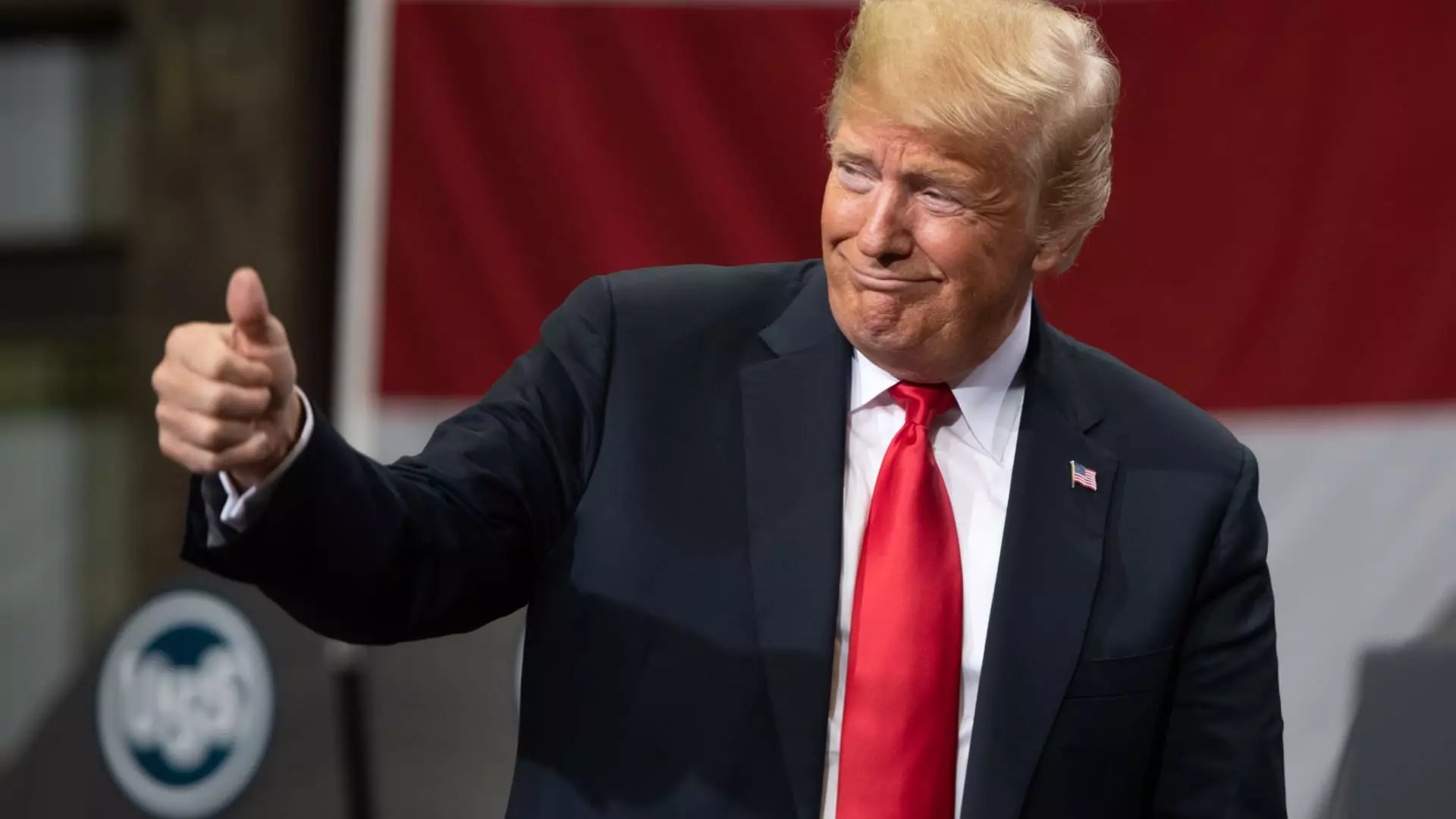When it comes to investing, few figures are as polarizing as former President Donald Trump. His recent social media assertions, including the fervent declaration that “THIS IS A GREAT TIME TO BUY!!!” at the opening bell signified a pivotal moment for many investors. On that fateful Wednesday morning, those who acted on his cryptic message witnessed a significant uptick in their portfolios, driven not only by the echoes of Trump’s past positions but also by a sudden rollback of some of his contentious tariffs. Investors willing to ride this volatility wave found themselves in a precarious yet profitable position—a scenario that highlights the complexity of relying on celebrity politics for investment strategies.
The immediate effects of Trump’s statement were evident almost instantaneously as the market saw rapid fluctuations. One can hardly overlook the irony—how a directive from a figure often accused of manipulating markets turned out, at least on this occasion, to produce fleeting gains. The gains were indeed astonishing, with major indexes such as the S&P 500 rising almost 10.5% on that day alone, signaling an era where the line between political rhetoric and market mechanics has blurred significantly.
The Allure of Quick Returns
For the average investor, Trump’s rallying cry offered an enticing opportunity—a 11% profit on the SPDR S&P 500 ETF Trust (SPY) if acted upon promptly. If you had invested a mere $1,000 at 9:37 a.m. ET, you would have cashed out approximately $1,110 by the end of the session. The justifications for seizing such opportunities usually fall in line with the relentless pursuit of quick returns—an alluring proposition that ultimately casts a long shadow over long-term investment strategies.
However, this market behavior raises broader questions about ethics and stability. Is the frantic rush to capitalize on Trump’s tweets a sustainable approach to investing, or does it expose individuals to an economy that is not inherently stable? Such highs in the market can often lead to a crash just as swift, showing how reliance on catchphrases rather than financial fundamentals can render investments questionable.
Are We Witnessing Insider Trading?
The rapid gains in companies like Trump Media & Technology also ignite debate around market manipulation. With much of Trump’s wealth tied to his media venture, one can’t help but wonder if insider trading allegations hold any weight. Social media buzz even reflected this sentiment, with concerns sounding alarms over the thin line between savvy investing and unethical behavior.
The question looms large: how often has Trump’s rhetoric influenced not only investors but also broader market trends in ways that can be classified as market manipulation? The phenomenon of a former president inciting trading through social media poses complications we have yet to fully comprehend, particularly given the practical constraints on traditional regulatory frameworks. Investors sharing their insights on forums like WallStreetBets can be seen as both pioneers of a new investment philosophy and as cautionary tales of the perils of impulsive decisions driven by erratic political commentary.
The Stakeholders of Market Sentiment
In an increasingly interconnected ecosystem, stakeholders from various backgrounds—all chasing the elusive dream of wealth—have begun to form a new kind of market culture. Trump’s unpredictable declarations have not just gained traction among seasoned investors but also attracted the attention of retail investors drowning in information streams. Instead of shying away from risk in uncertain times, many seem emboldened by the belief that fortune favors the bold.
Furthermore, the whirlwind of excitement surrounding Trump’s post-followed by tangible returns—albeit fleeting—has redefined the landscape of how laypeople interact with financial markets. The narrative surrounding ordinary investors overcoming bad news through political commentary embodies a new truth: that the stock market has become part of pop culture, where political figures often double as economic prophets.
Though it’s difficult to forecast the future trajectory of such movements amid the ever-present turbulence, the increasing legitimacy given to politicians’ voice—and social media presence—indicates an evolving narrative in financial discourse. To that end, while opportunists might celebrate their gains from speculations tied to Trump’s statements, one must ponder the sustainability of this market based on whims and pronouncements. The new norm is here; we must brace ourselves for the unexpected twists and turns to come.

